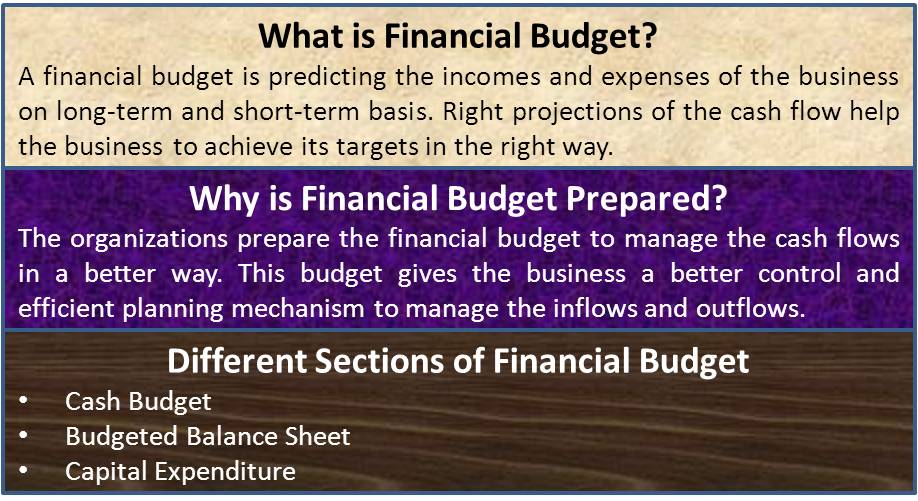A budget helps an organization allocate the resources of the company to different departments and activities and manage the cash flows of the business in an effective way. There are many types of budgets. One of them is a financial budget.
First, let’s try to understand the term a bit better.
What is a Financial Budget?
A financial budget (a type of master budget) in budgeting means predicting the income and expenses of the business on a long-term and short-term basis. Accurate cash flow projections help the business achieve its targets in the right way.
Financial budget preparation includes a detailed budget balance sheet, cash flow budget, the sources of income and expenses of the business, etc. The evaluation of incomes and expenses is done on a monthly, quarterly, half-yearly, or annual basis, depending on the organization’s suitability. It is a very powerful tool to achieve the long-term goals of any business. Importantly, it also keeps the shareholders and other members of the organization updated about the functioning of the business.

Why Prepare a Financial Budget?
Organizations prepare a financial budget to manage the cash flows better. This budget gives the business better control and provides a more efficient planning mechanism to manage the inflows and outflows. To prepare such a budget, it is important to prepare the operating budget first. With the help of the operating budget, the organization can predict the sales and production expenses. Therefore, the organization prepares this budget only after planning the different financing activities in the operating budget.
Also Read: Types of Budget
Different Sections of a Financial Budget
Capital Expenditure Budget
As the name suggests, the capital expenditure budget relates to expenses related to plant and machinery or any capital asset of the business. This budget determines the expenses that would be incurred if an existing plant is replaced or any new machinery is bought. Factors like depreciation, cost of the plant, life of the machinery, etc., are taken into account when preparing the capital expenditure budget.
Budget Income Statement
The budgeted income statement contains comparative information of actual and budgeted data. Read more about the budgeted income statement.
Budgeted Balance Sheet
The budgeted balance sheet comprises many other budgets. The major component of this budget includes the production budget and its associated budgets.
Let’s take a closer look at the financial budget preparation.
Financial Budget Plan
The financial budget plan comprises the following steps:
- Calculate the expected inflow
- Calculate the expected outflow
- Set the targets
- Divide the expenses into different categories
- Keep track of components in the budget
- Set up the ledger
The above points give some idea of how a financial budget plan is set. Different organizations may take different factors into consideration while preparing the budget. However, the above points will form part of any budget plan.
Conclusion
The financial budget provides a blueprint for the business to move forward. It addresses the financial aspects of the business and checks operational efficiency. The extra expenses are cut by emphasizing cost reduction and improving the market share. The organization is well prepared to meet the long-term and short-term expenses in terms of financial budgets. A good budget helps achieve the business’s goals and objectives in the shortest possible span of time.
Quiz on Financial Budget
Let’s take a quick test on the topic you have read here.


Great post. I am facing a couple of these problems.